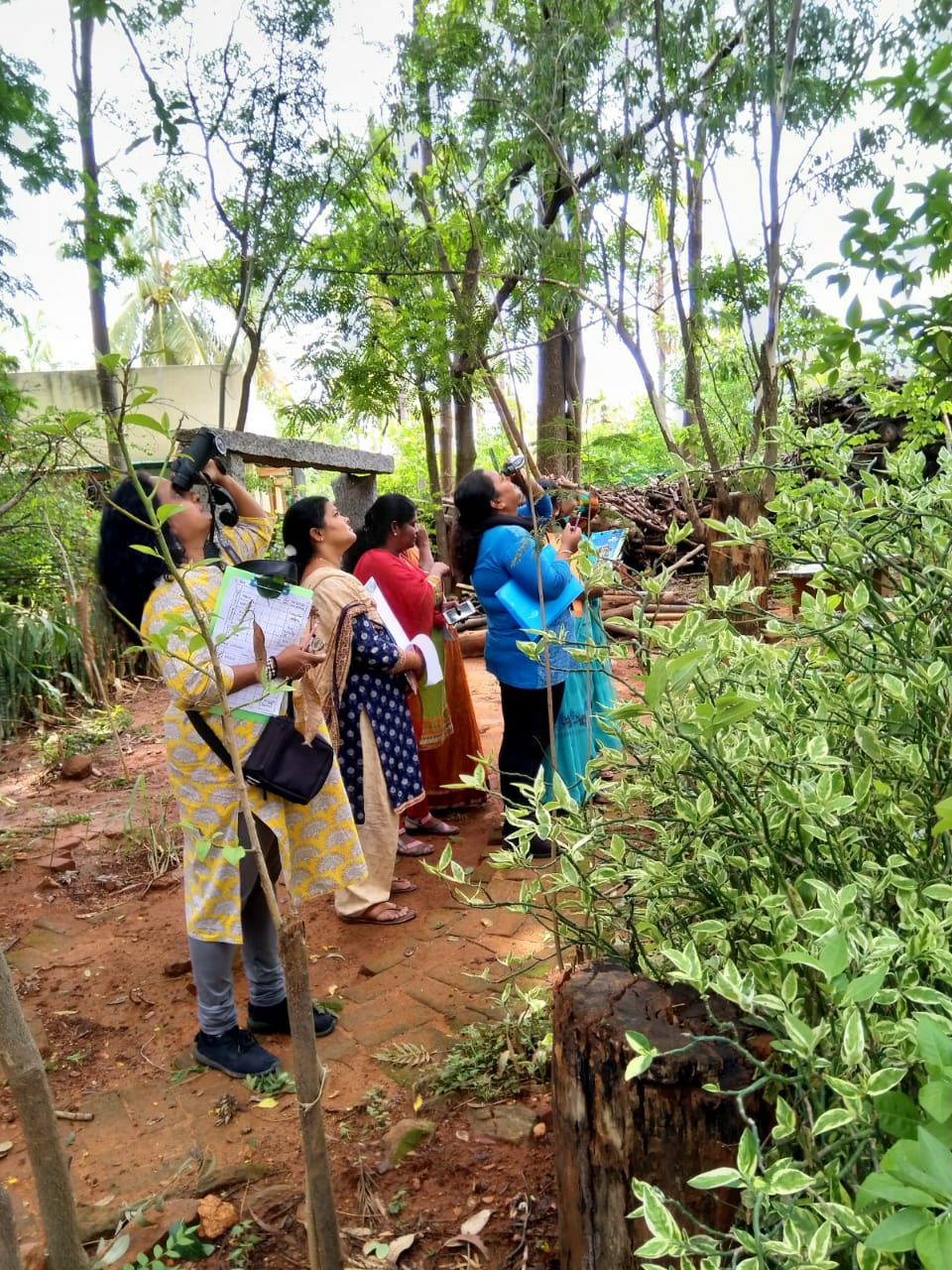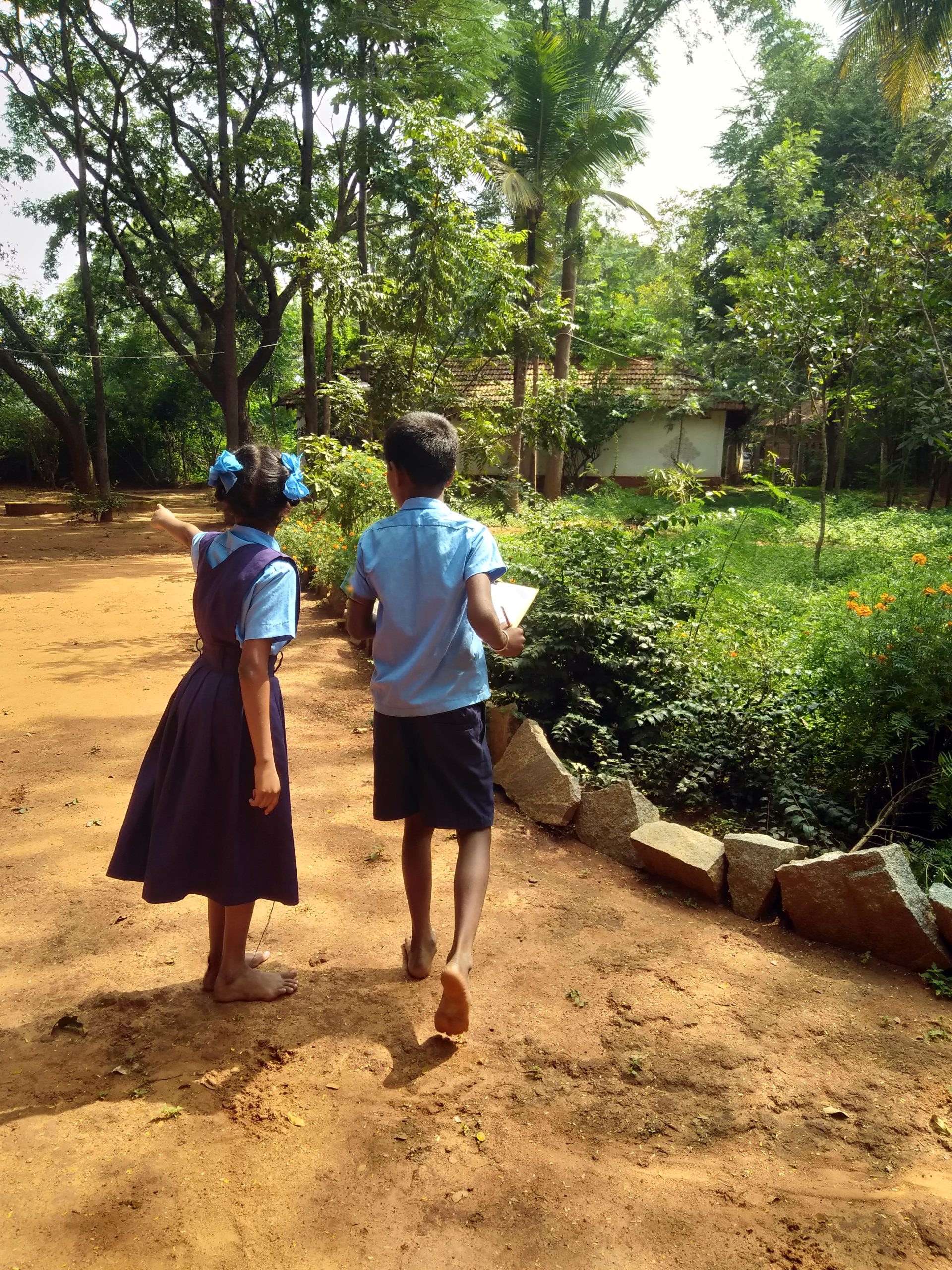Module 13: Conservation education
An on-line resource for practitioners
Photo by Nature Classrooms
About this module
Across the snow leopard range, people and snow leopards share space. A supportive constituency of communities and individuals is paramount for the conservation of the snow leopard. Environmental education is one means of building support and creating awareness amongst children, young people and adults for the long term. It is the process of creating knowledge of the environment; strengthening pro-environmental values among children; motivating young people to participate in environmental protection; and through a process of empowerment find solutions for environmental problems. It involves the continued strengthening of positive values among people towards snow leopards and the environment. Children’s environmental education is particularly important as children are the future environmental custodians and also have the capacity to influence present household pro-environmental behaviours.
While the importance of conservation education for coexistence is evident, conceptualising and implementing a conservation education module can be a lot more challenging. What are the goals of the conservation education programme? What are the most effective ways for children to learn? How can conservation education programmes be tailored to create impactful, long-term change? How can we incorporate place-based knowledge into our programmes?
In this module on conservation education these questions and more will be discussed, hosted by SLN-GSLEP and brought to you thanks to the support of other conservation education partners. Participants will be introduced to the theory and basics of conservation education, build skills so that conservation education can be made more effective, and exposed to conservation education programmes in the snow leopard landscape. Do join us for this exciting and interactive module!
This Module is offered thanks to the contributions and support of University of Vermont, Nature Classrooms, Land of the Snow Leopard Network, the Snow Leopard Conservancy , Snow Leopard Trust and GSLEP.
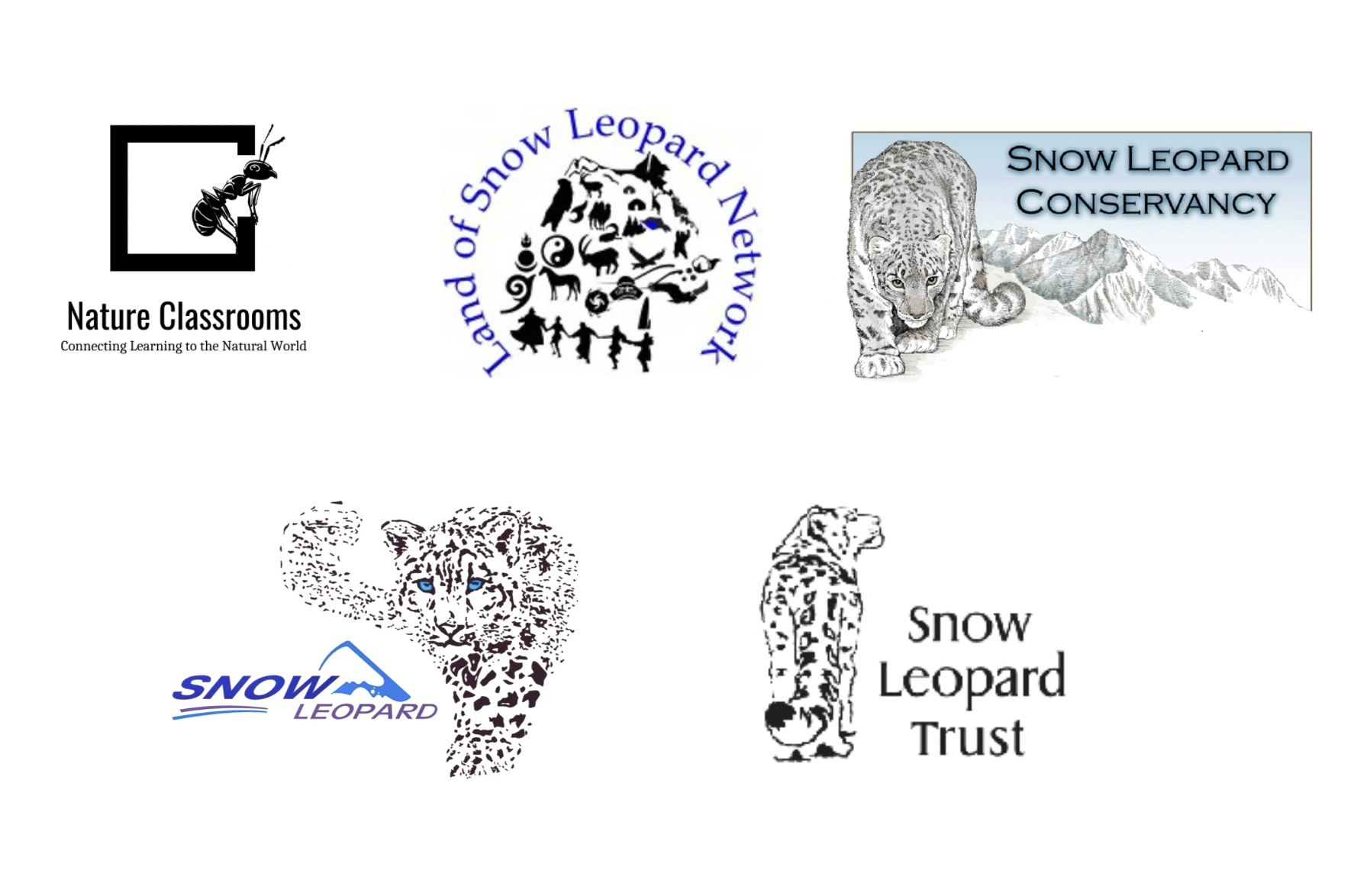
Lets get started
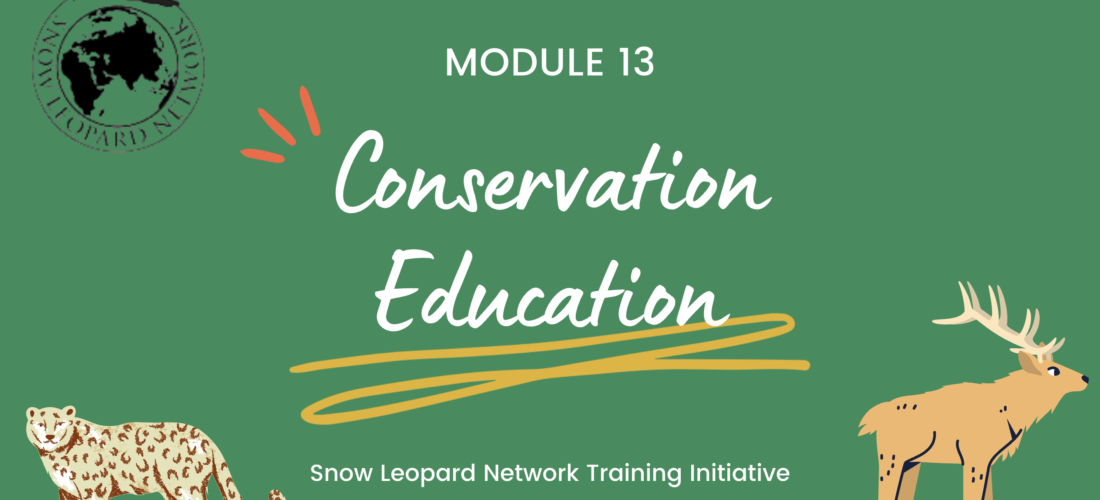
Session 1: Introduction to Conservation Education
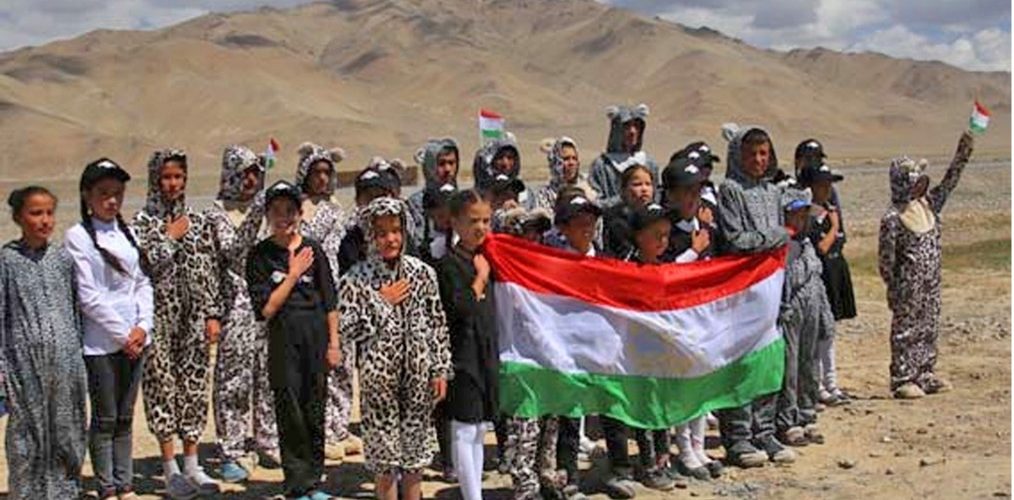
Session 2: Land of the Snow Leopard Network
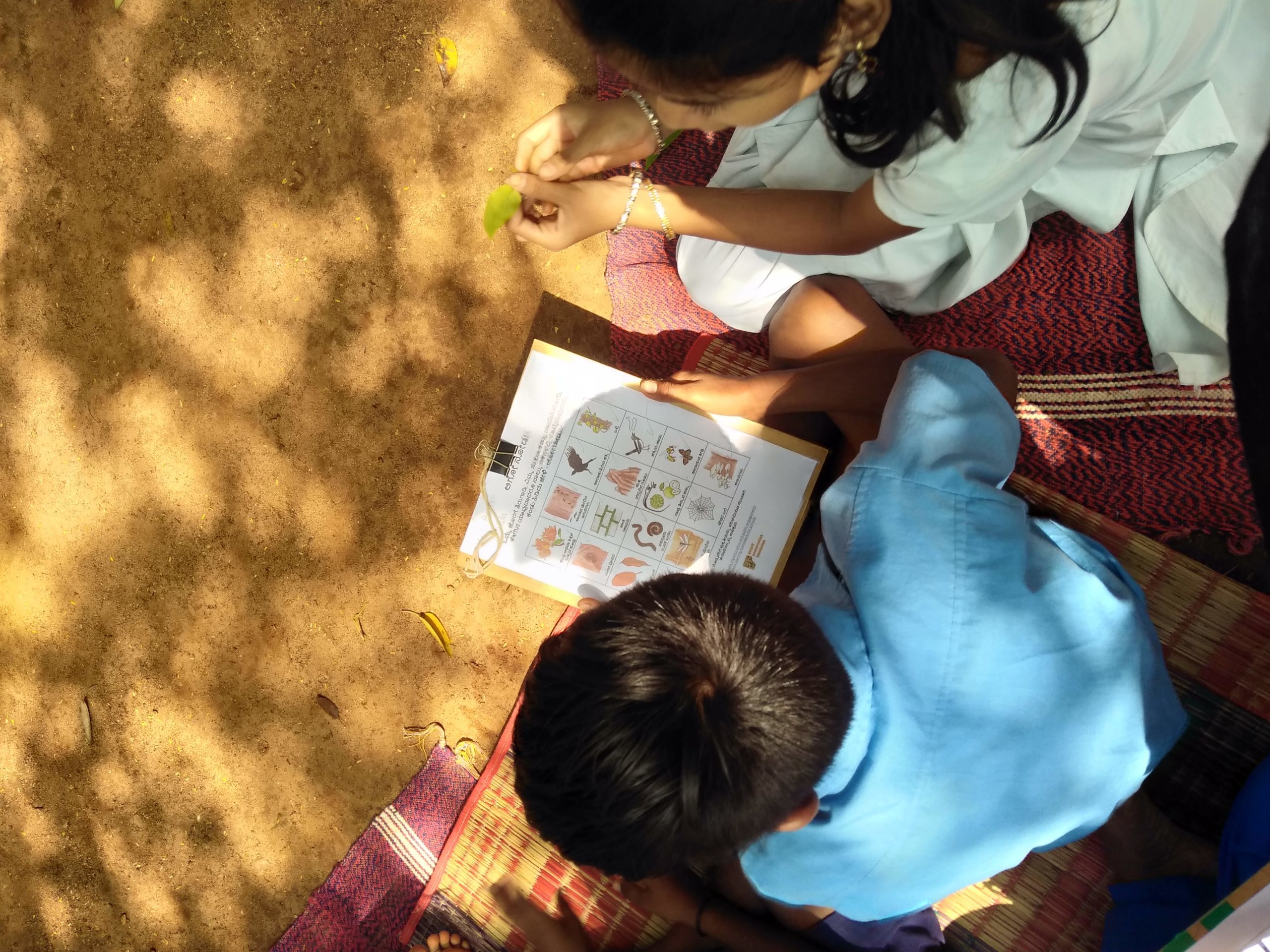
Session 3 & 4: Connecting Learning to the Natural World – A Nature Classrooms Approach
Meet the Resource Team
Meet the Resource Team
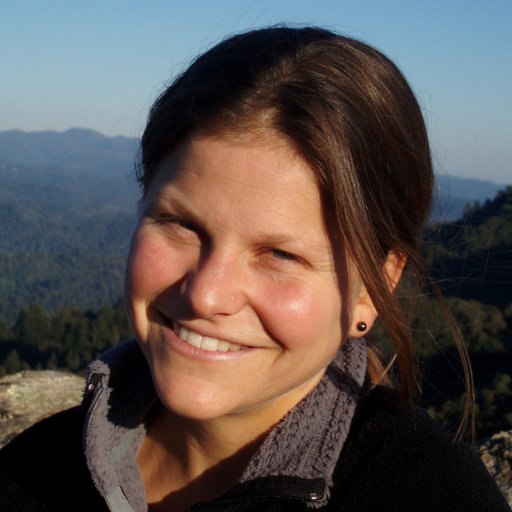 Rachelle Gould is an interdisciplinary scholar whose work involves primarily social science and the humanities, and some ecology. She is an Assistant Professor of Sustainability and Global Equity at the University of Vermont. Her research explores the relationship between people and ecosystems and focuses on: (1) lifelong and life-wide environmental education and learning; (2) environmental values, including Cultural Ecosystem Services and relational values; (3) how issues of equity, inclusion, and justice permeate environmental issues. She has taught Environmental Education at the University Vermont for over five years.
Rachelle Gould is an interdisciplinary scholar whose work involves primarily social science and the humanities, and some ecology. She is an Assistant Professor of Sustainability and Global Equity at the University of Vermont. Her research explores the relationship between people and ecosystems and focuses on: (1) lifelong and life-wide environmental education and learning; (2) environmental values, including Cultural Ecosystem Services and relational values; (3) how issues of equity, inclusion, and justice permeate environmental issues. She has taught Environmental Education at the University Vermont for over five years.

Tungalagtuya Khuukhenduu (Tunga) is a founder, director at the Nomadic Nature Conservation, Mongolia, NGO. She serves as the country coordinator of the Land of Snow Leopard (LOSL), an International Network Organization. Tunga has an extensive professional background in science and conservation awareness. She played a major role in creating Nomadic Nature Trunk Program, for different-ecosystem conservation program. This program has produced and distributed mobile classrooms for rural schools, communities throughout Mongolia. In particular, she has developed environmental conservation curriculum based on participatory and game-based lessons, which are for specific ecosystems and endangered species. Since 2019, the Trunk Program has also been implemented to the stakeholders in Kyrgyzstan, Tajikistan, Buryatia and Altai Republic and Mongolia for the purpose of conserving snow leopard, a sacred cat species.
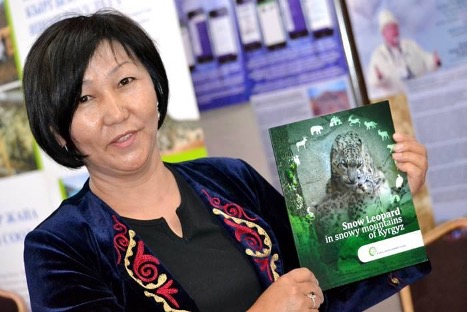 Kuluipa Akmatova is one of the most qualified and foremost researchers of traditional knowledge in Kyrgyzstan. With an educational background in history and sociology obtained from the Kazan University in the Russian Federation, Ms. Kuluipa has managed to become one of the pioneers in studying and documenting traditional ecological knowledge in Kyrgyzstan and has contributed significantly to its revitalization. She has immense experience in community mobilization and engagement, training, and rural development. Since 2017, she has been leading the PF “Rural Development Fund” and actively participating in civil society development. Say, she is a member of the Governing Council of the World Union of Spiritual Practices, a member of the international network of snow leopard defenders LOSL, a member of the Supervisory Board of the Agency for Community Development and Investment of the Kyrgyz Republic. Currently, Mr.Kuluipa promotes the ILC Asia CBI-6 Platform on Locally-Managed Ecosystems with its 16 member NGOs. She serves as a country coordinator of the Land of Snow Leopard (LOSL).
Kuluipa Akmatova is one of the most qualified and foremost researchers of traditional knowledge in Kyrgyzstan. With an educational background in history and sociology obtained from the Kazan University in the Russian Federation, Ms. Kuluipa has managed to become one of the pioneers in studying and documenting traditional ecological knowledge in Kyrgyzstan and has contributed significantly to its revitalization. She has immense experience in community mobilization and engagement, training, and rural development. Since 2017, she has been leading the PF “Rural Development Fund” and actively participating in civil society development. Say, she is a member of the Governing Council of the World Union of Spiritual Practices, a member of the international network of snow leopard defenders LOSL, a member of the Supervisory Board of the Agency for Community Development and Investment of the Kyrgyz Republic. Currently, Mr.Kuluipa promotes the ILC Asia CBI-6 Platform on Locally-Managed Ecosystems with its 16 member NGOs. She serves as a country coordinator of the Land of Snow Leopard (LOSL).
 Almagul Osmonova is a Director of Taalim-Forum pubic foundation in Kyrgyzstan. She has experience in teaching at schools and lecturing at universities. For the last 10 years, her NGO is actively promoting ethno-environment education; developing educational materials, teachers’ methodologies, organizing workshops for teachers, and publishing books for children with the focus on local environment, biodiversity and cultural heritage. With the support of SLC, the informal network of teachers called Eco-Bilim (Eco-Knowledge) was established to support teachers from mountain regions to learn and discuss the issues of protecting mountain ecosystems, how to use new methodologies and approaches in environment education at schools. Rural Development Fund and Taalim-Forum are working with school children in the mountain regions, which includes organizing summer camps, festivals, theatrical performances, and different school activities and projects together with trained teachers. Teachers’ training includes learning innovative methodologies and approaches engaging children in conservation. Almagul serves as a country coordinator of the Land of Snow Leopard (LOSL).
Almagul Osmonova is a Director of Taalim-Forum pubic foundation in Kyrgyzstan. She has experience in teaching at schools and lecturing at universities. For the last 10 years, her NGO is actively promoting ethno-environment education; developing educational materials, teachers’ methodologies, organizing workshops for teachers, and publishing books for children with the focus on local environment, biodiversity and cultural heritage. With the support of SLC, the informal network of teachers called Eco-Bilim (Eco-Knowledge) was established to support teachers from mountain regions to learn and discuss the issues of protecting mountain ecosystems, how to use new methodologies and approaches in environment education at schools. Rural Development Fund and Taalim-Forum are working with school children in the mountain regions, which includes organizing summer camps, festivals, theatrical performances, and different school activities and projects together with trained teachers. Teachers’ training includes learning innovative methodologies and approaches engaging children in conservation. Almagul serves as a country coordinator of the Land of Snow Leopard (LOSL).
 Lyubov Ivashkina lives in Gorno-Altaysk (Russia, south of Western Siberia). Environmental journalist. For many years she worked in the editorial office of the republican radio and in the editorial office of the republican newspaper “Star of Altai”. As a journalist, he closely cooperates with nature conservation organizations of the Altai Republic: these are the Altai Nature Reserve, the Katunsky Nature Reserve, the Saylyugemsky National Park and the natural parks of Gorny Altai. As a journalist and photographer, he has been collaborating with WWF (World Wildlife Fund) for many years. Together with the Foundation for Sustainable Development of Altai (FSDA), she took part in organizing the first children’s festival in the Altai Republic “Day of the Snow Leopard”. Lyubov continues to provide informational support for festivals and other events to preserve the snow leopard in the Altai Republic and the LOSL network countries on the pages of the site http://www.pero-altay.ru/. She serves as a country coordinator of the Land of Snow Leopard (LOSL). Today, as a member of the international network, LOSL, together with local spiritual leaders and employees of specially protected natural areas, continues to work among the local population to preserve the snow leopard in the Altai mountains.
Lyubov Ivashkina lives in Gorno-Altaysk (Russia, south of Western Siberia). Environmental journalist. For many years she worked in the editorial office of the republican radio and in the editorial office of the republican newspaper “Star of Altai”. As a journalist, he closely cooperates with nature conservation organizations of the Altai Republic: these are the Altai Nature Reserve, the Katunsky Nature Reserve, the Saylyugemsky National Park and the natural parks of Gorny Altai. As a journalist and photographer, he has been collaborating with WWF (World Wildlife Fund) for many years. Together with the Foundation for Sustainable Development of Altai (FSDA), she took part in organizing the first children’s festival in the Altai Republic “Day of the Snow Leopard”. Lyubov continues to provide informational support for festivals and other events to preserve the snow leopard in the Altai Republic and the LOSL network countries on the pages of the site http://www.pero-altay.ru/. She serves as a country coordinator of the Land of Snow Leopard (LOSL). Today, as a member of the international network, LOSL, together with local spiritual leaders and employees of specially protected natural areas, continues to work among the local population to preserve the snow leopard in the Altai mountains.
 In the Pamir Mountains, the main threat to snow leopards is conflict with herders. Qurbon Alamshoev has more then ten stories about snow leopards being released back into the wild after being captured by villagers. These snow leopards had killed the herders’ livestock. With Qurbon providing information on the importance of snow leopards in the ecosystem and their cultural significance through the popular Snow Leopard Day Festivals, villagers chose to release these snow leopards rather than retaliate and kill them. Qurbon serves as a country coordinator of the Land of Snow Leopard (LOSL).
In the Pamir Mountains, the main threat to snow leopards is conflict with herders. Qurbon Alamshoev has more then ten stories about snow leopards being released back into the wild after being captured by villagers. These snow leopards had killed the herders’ livestock. With Qurbon providing information on the importance of snow leopards in the ecosystem and their cultural significance through the popular Snow Leopard Day Festivals, villagers chose to release these snow leopards rather than retaliate and kill them. Qurbon serves as a country coordinator of the Land of Snow Leopard (LOSL).
 Vena Kapoor is an Ecologist and Nature Educator. She heads the Nature Classrooms project that is currently developing a well-researched, trialled, tested nature learning activities, modules and curriculum for primary schools in India using education theory and pedagogical practices. She also conducts workshops, talks, walks for adults and children to introduce them to the fascinating world of insects, spiders and nature around them. Vena holds an MPhil in Conservation Leadership from the University of Cambridge, UK and a Masters in Ecology from Pondicherry University.
Vena Kapoor is an Ecologist and Nature Educator. She heads the Nature Classrooms project that is currently developing a well-researched, trialled, tested nature learning activities, modules and curriculum for primary schools in India using education theory and pedagogical practices. She also conducts workshops, talks, walks for adults and children to introduce them to the fascinating world of insects, spiders and nature around them. Vena holds an MPhil in Conservation Leadership from the University of Cambridge, UK and a Masters in Ecology from Pondicherry University.
 Roshni Ravi is an educator with a Masters in Counselling Psychology from TISS, Mumbai. She spent several years teaching in an alternative school in Bangalore, India where she taught Language, Environmental Studies and Social Science. She has a keen interest in teaching-learning that is curiosity-driven, child-centred, experiential and wellbeing focussed. As part of Nature Conservation Foundation’s Nature Classrooms project she works with primary school teachers and educators to co-develop nature learning resources and experiences across diverse learning spaces.
Roshni Ravi is an educator with a Masters in Counselling Psychology from TISS, Mumbai. She spent several years teaching in an alternative school in Bangalore, India where she taught Language, Environmental Studies and Social Science. She has a keen interest in teaching-learning that is curiosity-driven, child-centred, experiential and wellbeing focussed. As part of Nature Conservation Foundation’s Nature Classrooms project she works with primary school teachers and educators to co-develop nature learning resources and experiences across diverse learning spaces.
Congratulations for completing this on-line module!
If you have any further questions please do get in touch

